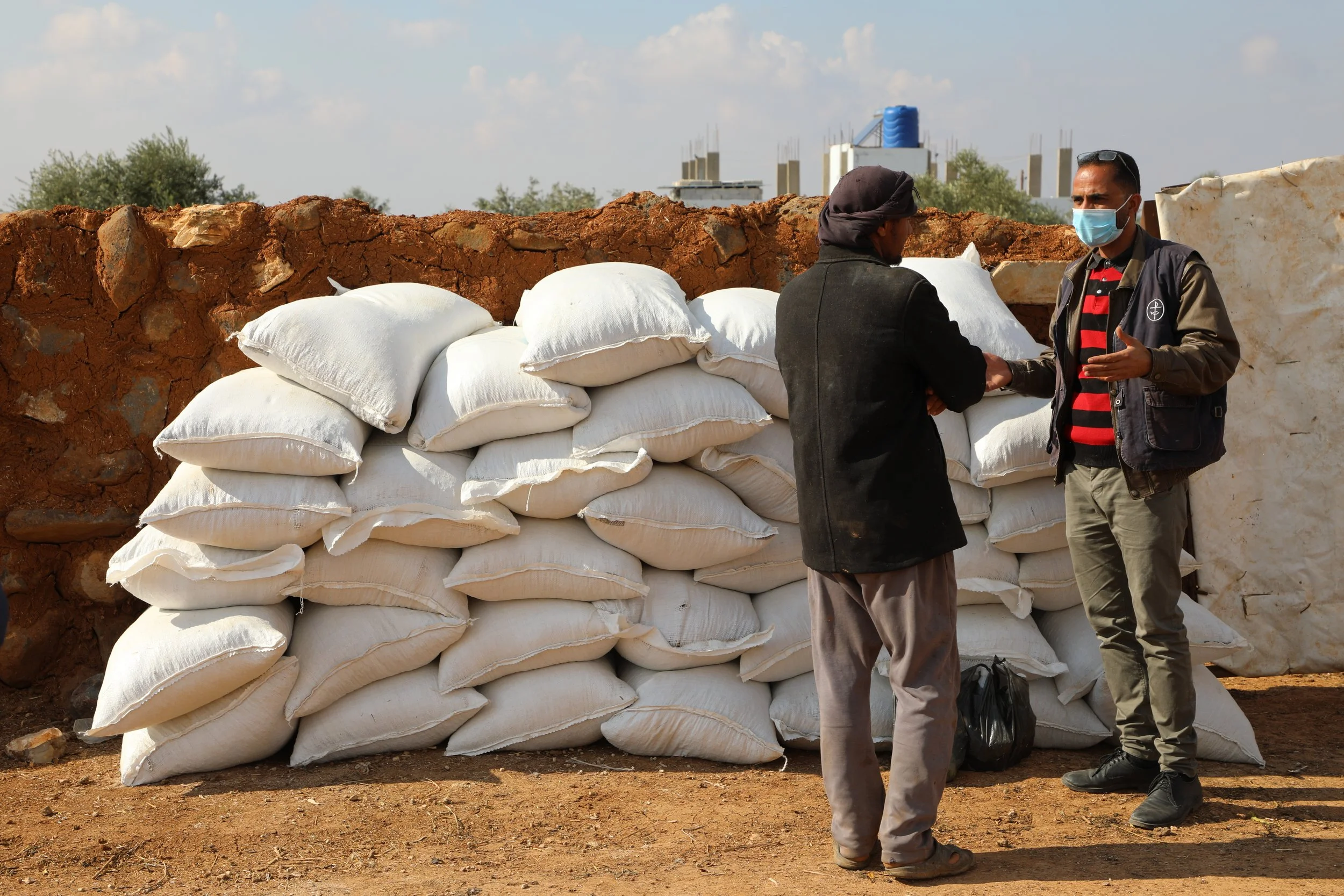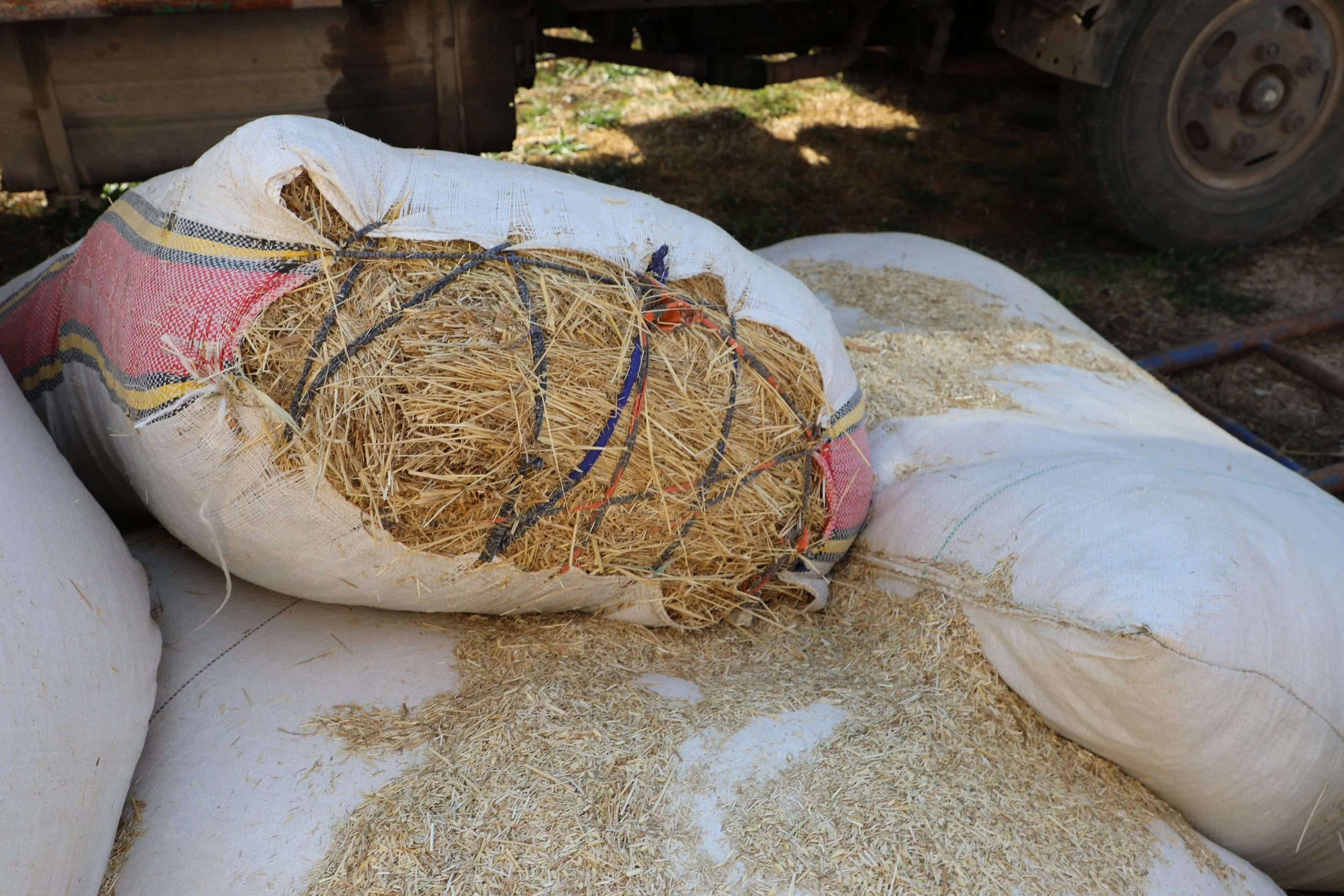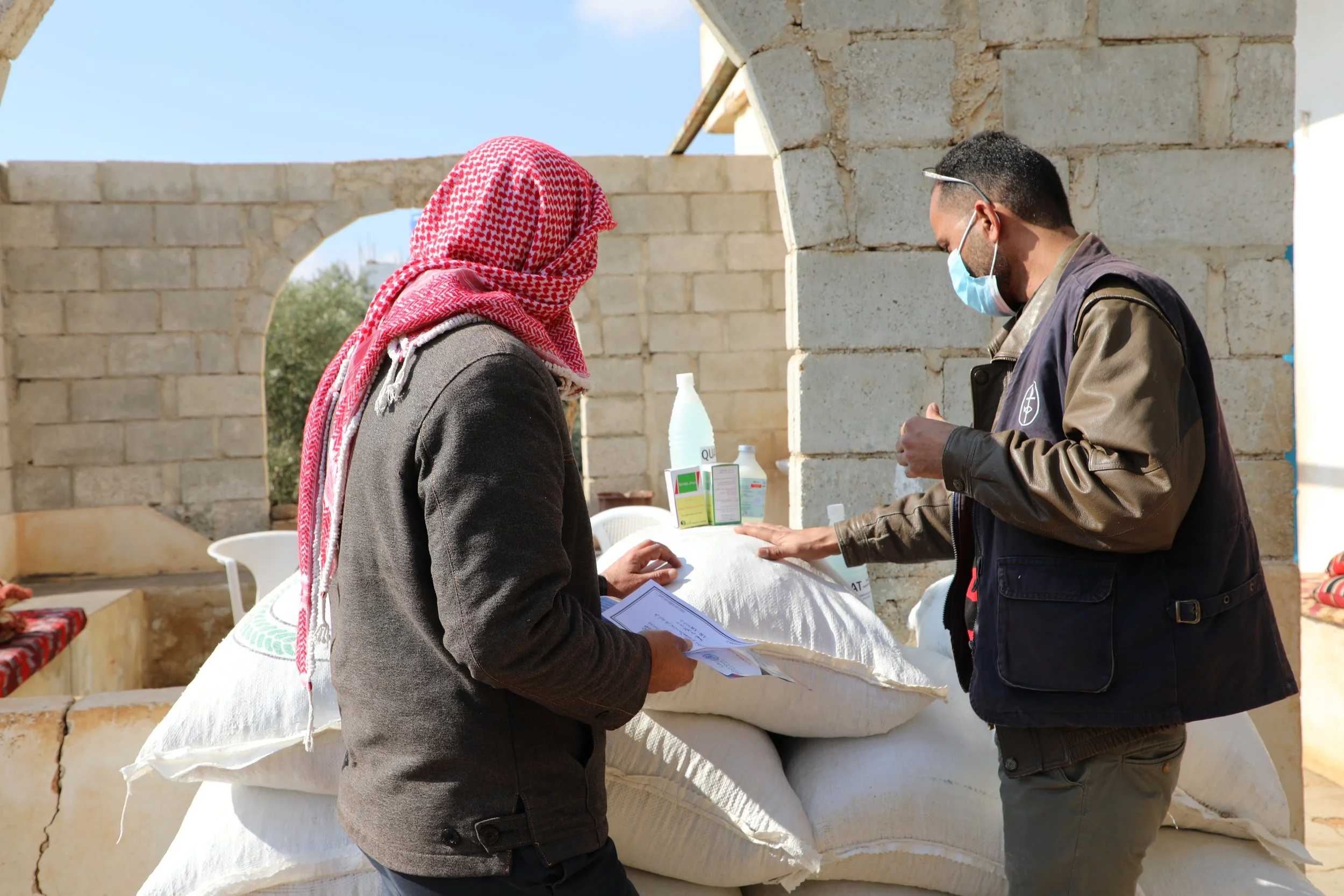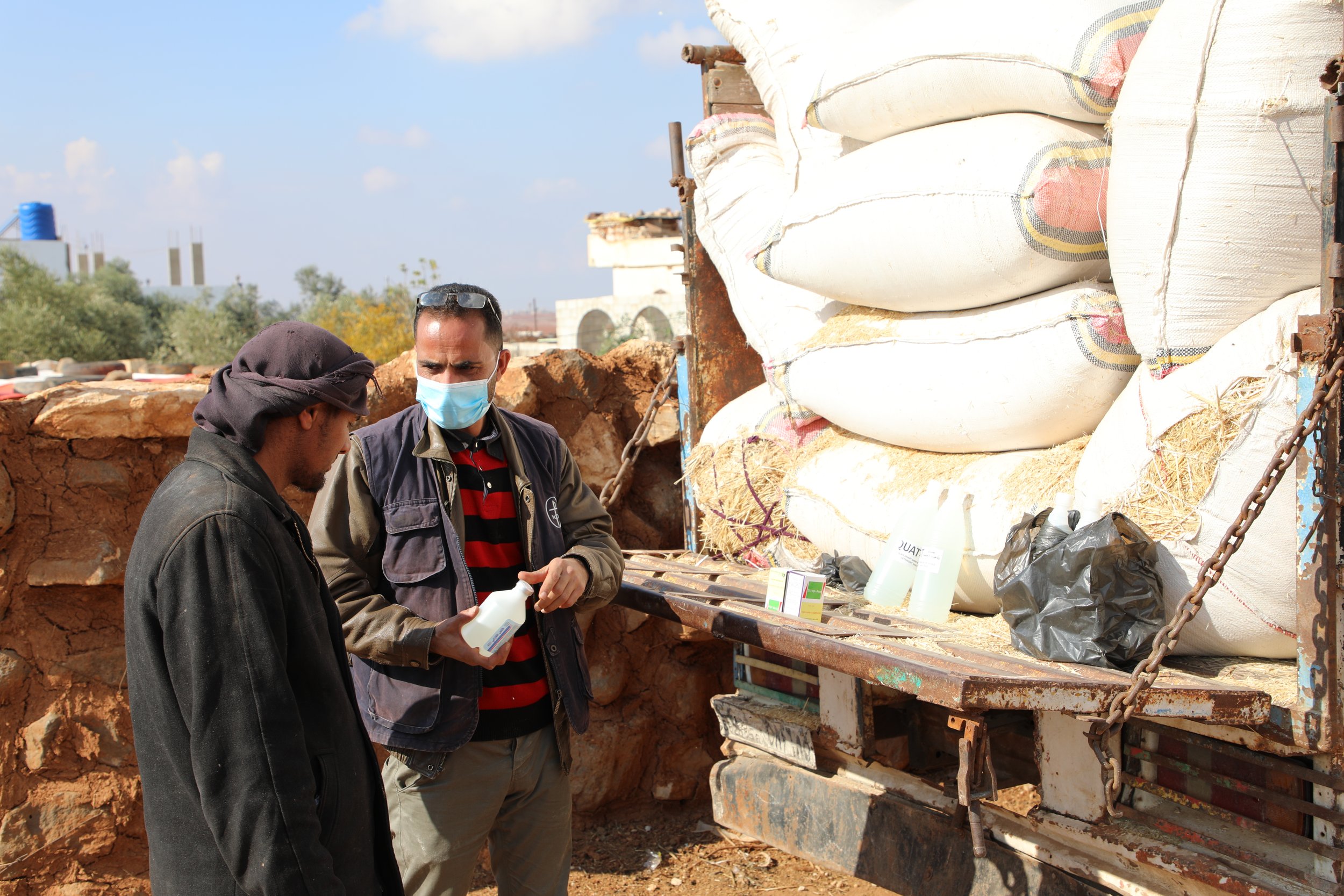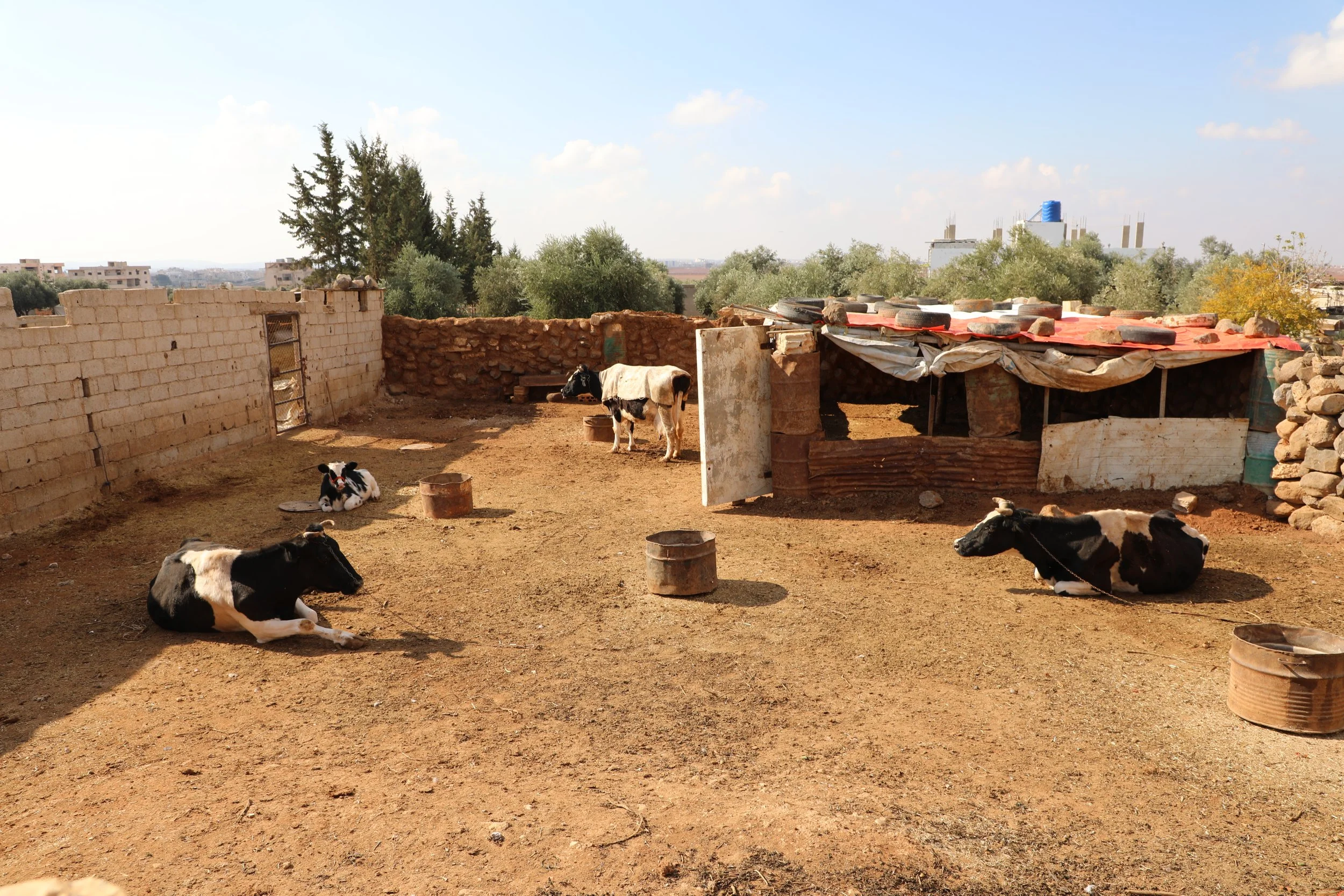Distribution of 900 kg of Fodder and 720 kg of Hay to Livestock Breeders in Al Naimeh Town
Before the war in Syria, livestock breeders used to find high-quality fodder at reasonable prices in the market. However, the livestock sector, like other sectors, was affected by war and started to face many challenges, the most important of which are high prices of fodder and periodic vaccinations.
This, in turn, has affected the ability of many livestock breeders in poor villages who resort to breeding in order to sell milk and dairy products to support their families. Many livestock breeders will no longer be able to continue their work taking into consideration constant losses resulting from high fodder prices.
In order to enable poor families and enhance their ability to join the economic life, the Middle East Council of Churches, Syria’s Office, was keen to support the livestock sector. The Service and Relief Department - Diakonia worked on distributing 900 kg of fortified fodder and 720 kg of hay to 72 cattle breeders that are most in need in Naimeh village in Rural Dara’a in addition to providing veterinary services, medications and vaccines.
One of the livestock breeders in the town of Naimeh, who is the only breadwinner of his family, said, “In the past, the prices of fodder were suitable, but today, the prices have become very high, therefore, I am obliged to borrow money in order to buy fodder and then pay the money back after selling milk, which negatively affects the income of the family.”
He added, “MECC did not provide fodder only; I also received medications for my livestock, and benefited from the services of a veterinarian who explained to me how to use some medications while he gave the livestock some other medications. This assistance encouraged beneficiaries to continue breeding; especially since this is the only way to generate an income in addition to milk and dairy products for the population of Naimeh.”
Another beneficiary breeder said, “I stopped buying big amounts of fodder due to expensive prices, this affected the quantity of produced milk as it is very well known that only when a cow receives a sufficient quantity of fodder, it gives a good quantity of milk reaching about 25 kg. The big quantity of fodder provided by MECC will help me stop borrowing money and will, consequently, enable me to keep the profit from selling the milk and use it to secure my family needs of food and wood for heating as well as pay off my debt at the grocery store.”

